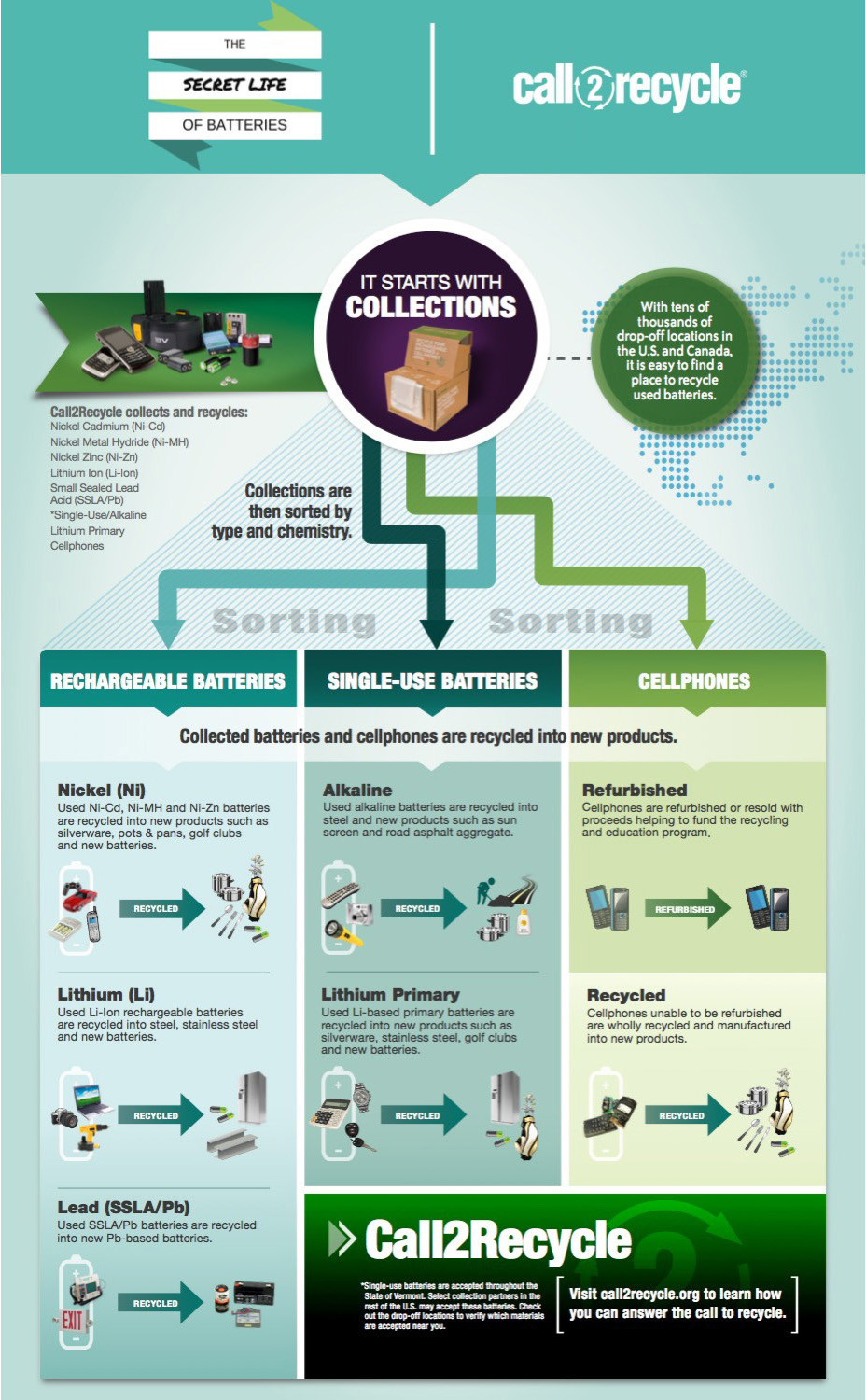It is safe to say that we are learning a lot of new things in 2020. We are learning about virus infection rates, how the economy works, and how to cook for ourselves. But not all the news you hear is "doomy". Canada is looking to ban some single-use plastics, GHG emissions are way down, and did you know that 91% of Canadians live within 15 km of a battery recycling drop-off site?
That's according to Call2Recycle Canada, a not-for-profit group who want to recycle as many batteries as possible. I bet it's probably within your reach too! But why can’t we just throw them away? They may look small and insignificant, but the truth is they are harmful to our environment.
Since batteries are made from toxic heavy metals, they cause problems when they end up in the trash without being recycled. So you definitely want to treat them carefully once they are dead. Do you remember the Samsung Galaxy explosions? This proves the dangers of batteries, and landfill workers know all about since sometimes lithium-ion batteries explode when they are compressed in the trash.
Here are a few clips (explosion in Orlando, iPhone explodes in Store).
When these batteries breakdown in landfills, they can contribute to water, air, and soil pollution. Seriously, their toxic chemicals can leak and contaminate the soil and water streams. I myself had never stopped to think about how this can also harm communities, ecosystems, and food production. The toxic chemicals can even get inside our bodies, which I don't think I have to tell you is a bad thing.
Luckily, you can recycle batteries easily on campus. The Office of Sustainability has been providing battery boxes from Call2Recycle. These were newly installed across campus this spring. If you are wondering about how much of a difference it can make, well some batteries can be almost completely recyclable. You can take a look at the infographic below and get a glimpse at the secret life of batteries once you drop them in the box and which types of batteries are recycled.
*Note that lead-acid batteries are handled by the Office of Risk Management and Call2Recycle do not go in our battery boxes.
One of the big differences you might have noticed between these bins and the old ones we had on campus is the inclusion of tiny plastic bags for your rechargeable batteries. Why do we do this you might ask? Well batteries can become explosive if they are leaking and the chemicals start mixing together. Add a bunch of bumping around when the old batteries are being moved around and that could be a recipe for disaster.
We have recycled several metric tonnes of batteries throughout the past years. We have all put our “grain of battery” to add to these numbers. Keeping batteries out of our landfills is crucial for the environment and for us too.
Recycling is easy! No sweat, just drop them in the box!










Comments